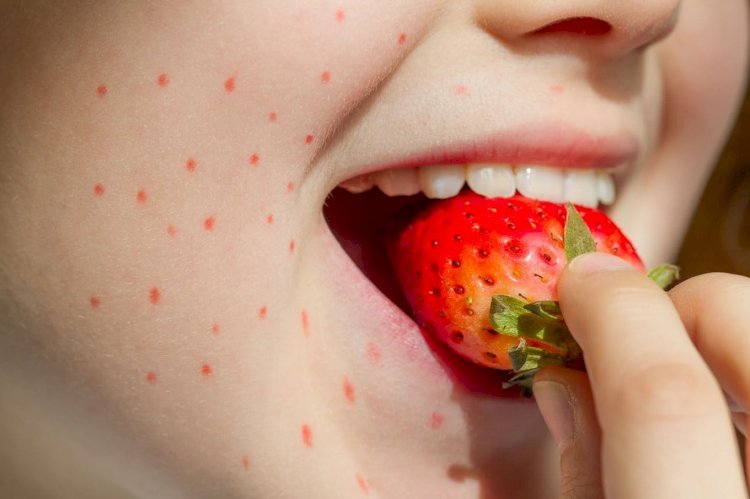How Accurate are Food Allergy Tests in Dubai?

In this article, we will explore in simple language what food allergy test in dubai are, how they work, how accurate they can be, and what you should keep in mind when you decide to get tested in Dubai.
What are food allergies?
Before talking about the tests, it is important to understand what food allergies are. Food allergies happen when the body’s immune system reacts to certain foods as if they are harmful, even though they might be harmless for most people. This immune reaction can lead to symptoms like:
-
Itchy skin or rashes
-
Swelling of lips, tongue, or face
-
Stomach pain, vomiting, or diarrhea
-
Breathing difficulties
-
In rare cases, a severe reaction called anaphylaxis
Food allergies can range from mild to severe. Some people react to even very small amounts of the food they’re allergic to.
Why do people need food allergy tests?
Many times, it is not easy to know exactly which food is causing an allergy. Symptoms may appear hours after eating, and sometimes, different foods can cause similar reactions. That’s why doctors like Dr Mahesh Katre recommend food allergy testing. These tests can help:
-
Confirm if symptoms are really due to food allergies
-
Identify the exact food causing the reaction
-
Help patients avoid unnecessary dietary restrictions
-
Guide doctors in making a treatment plan
Types of food allergy tests available in Dubai
In Dubai, modern clinics like Dr Mahesh Katre’s allergy clinic use several types of tests to detect food allergies. Here are the most common ones:
1. Skin Prick Test (SPT)
In this test, a tiny amount of food allergen is placed on the skin (usually the arm or back). The skin is then lightly pricked. If a person is allergic, a small red bump (like a mosquito bite) usually appears within 15–20 minutes.
2. Blood Test (Specific IgE Test)
This test measures the amount of specific IgE antibodies in the blood. These antibodies are produced by the immune system when it reacts to certain foods.
3. Oral Food Challenge
This is considered the most accurate test. Under strict medical supervision, the person eats small amounts of the suspected food to see if a reaction occurs. This test must always be done in a clinic or hospital with emergency facilities.
4. Elimination Diet
Sometimes, doctors may ask patients to avoid suspected foods for a few weeks and then slowly reintroduce them, observing if symptoms return.
How accurate are these food allergy tests?
The accuracy of food allergy tests depends on the type of test and how it is used. Let’s look at each in detail.
Skin Prick Test Accuracy
Skin prick tests are quite reliable for detecting immediate-type allergies (reactions that happen quickly, usually within minutes to two hours after eating). They are quick, low cost, and usually safe for most people.
However, they are not 100% accurate:
-
Sometimes, people may get a positive test even if they can actually eat the food safely. This is called a false positive.
-
Occasionally, someone who is allergic may get a negative test. This is called a false negative.
Overall, skin prick tests have good sensitivity (can detect allergies) but moderate specificity (may show allergy even if it’s not there).
Blood Test Accuracy
Blood tests measure the amount of IgE antibodies to specific foods. These tests are useful when:
-
The patient has severe eczema and skin tests cannot be done
-
The patient cannot stop taking antihistamines
-
The patient has a high risk of severe reaction during skin testing
Blood tests can also have false positives and false negatives. A high IgE level does not always mean the person will definitely react to the food. Results must always be interpreted by an experienced allergist like Dr Mahesh Katre, together with the patient’s medical history.
Oral Food Challenge Accuracy
The oral food challenge is considered the gold standard for diagnosing food allergies. When done properly in a controlled environment, it is the most accurate way to see if a person truly reacts to a certain food.
Because this test can sometimes cause real allergic reactions, it must always be done by an experienced specialist in a clinic equipped for emergencies.
Elimination Diet Accuracy
An elimination diet can also help identify problem foods, but it is less precise and can be difficult to follow correctly. Sometimes, people may feel better just because they expect to feel better (called the placebo effect). That’s why it is important to do elimination diets under medical guidance.
Factors that affect test accuracy
Even the best tests are not perfect. Here are some factors that affect test accuracy:
-
Age: Very young children may have different test responses.
-
Medications: Antihistamines and some other medicines can affect skin tests.
-
Timing: Testing too soon after a severe reaction may temporarily change immune responses.
-
Quality of allergen extracts: High-quality, fresh extracts give better results.
-
Experience of the allergist: Interpreting test results correctly requires skill and training.
At Dr Mahesh Katre’s clinic, we follow international guidelines to make sure tests are done properly and interpreted correctly.
Why you shouldn’t rely on home or online food allergy tests
Some companies offer home testing kits or “food intolerance” tests that claim to detect allergies. These tests often measure different antibodies (like IgG) that do not indicate real food allergies.
Using these unproven tests can lead to unnecessary worry, wrong diagnosis, and unnecessarily restricted diets that may harm nutrition, especially in children.
For reliable results, always consult a qualified allergist.
What should you do if your test shows you have a food allergy?
A test result alone is not enough. The allergist will:
-
Review your detailed medical history
-
Consider your test results
-
Possibly recommend an oral food challenge for confirmation
-
Advise on safe foods and what to avoid
-
Teach you about emergency plans (like carrying an epinephrine auto-injector if needed)
Never remove many foods from your diet without medical advice, as this can lead to nutritional problems.
How food allergy testing helps people in Dubai
Dubai is a multicultural city, and people enjoy cuisines from many cultures. For residents and visitors with food allergies, knowing exactly which foods are risky is very important.
Proper testing helps people:
-
Enjoy meals with more confidence
-
Avoid only foods they are truly allergic to
-
Reduce unnecessary food restrictions
-
Keep children healthy and growing well
-
Feel safer when dining out or traveling
Why choose Dr Mahesh Katre for food allergy testing in Dubai?
At Dr Mahesh Katre’s clinic, we believe in careful, evidence-based diagnosis. Here’s why patients trust us:
-
We use internationally recommended testing methods
-
Tests are done under safe, controlled conditions
-
Results are interpreted by an experienced allergist
-
We offer complete care: testing, counseling, and emergency plans
-
We understand local food habits and common allergens in Dubai
Final thoughts
Food allergy tests can be very helpful, but no test is perfect. The best approach is to combine test results with a detailed medical history and, if needed, an oral food challenge under supervision.
If you or your child has symptoms that might be related to food, don’t guess or use unproven tests. Consult a qualified allergist like Dr Mahesh Katre. This way, you can get an accurate diagnosis and a clear plan to stay healthy and safe.
At the end of the day, accurate testing isn’t just about avoiding certain foods – it’s about living a fuller, happier life with confidence.
What's Your Reaction?















